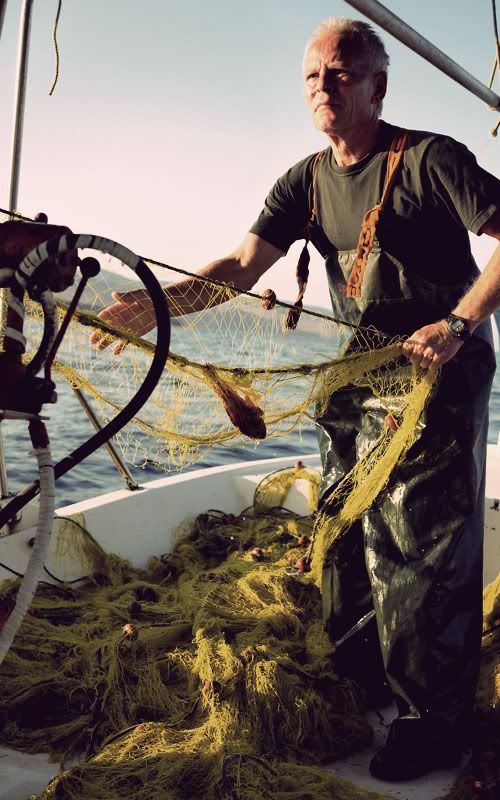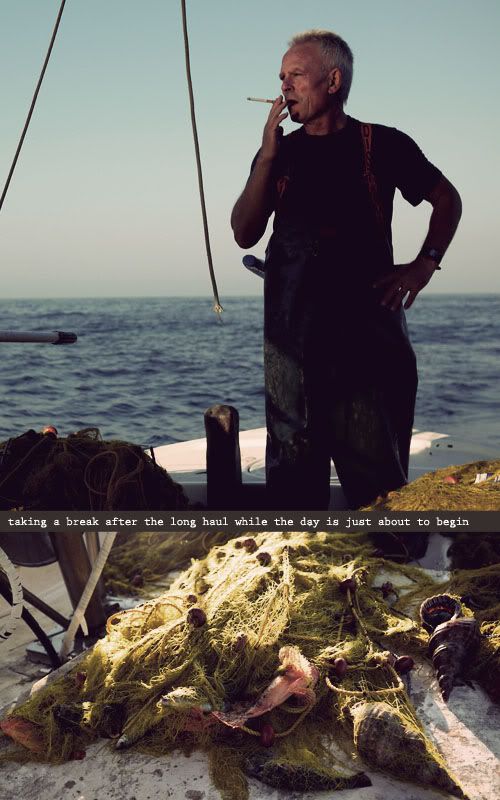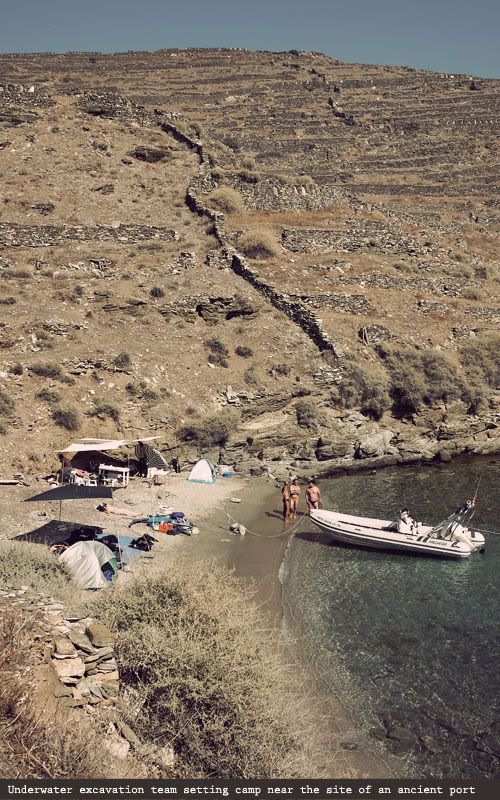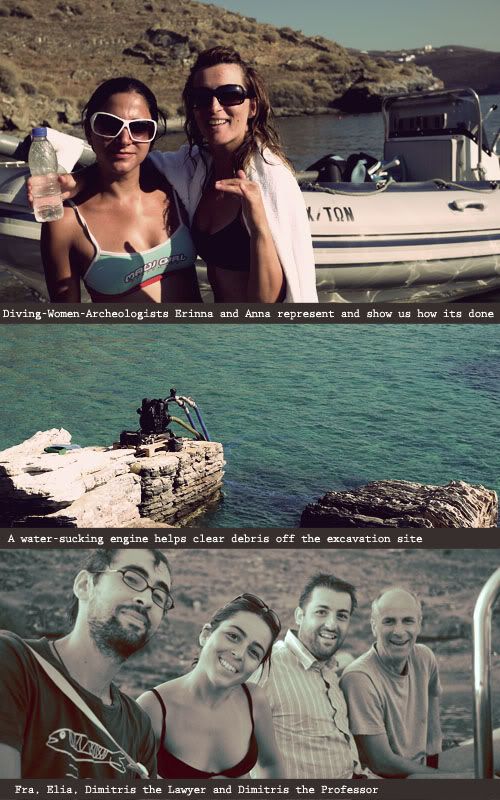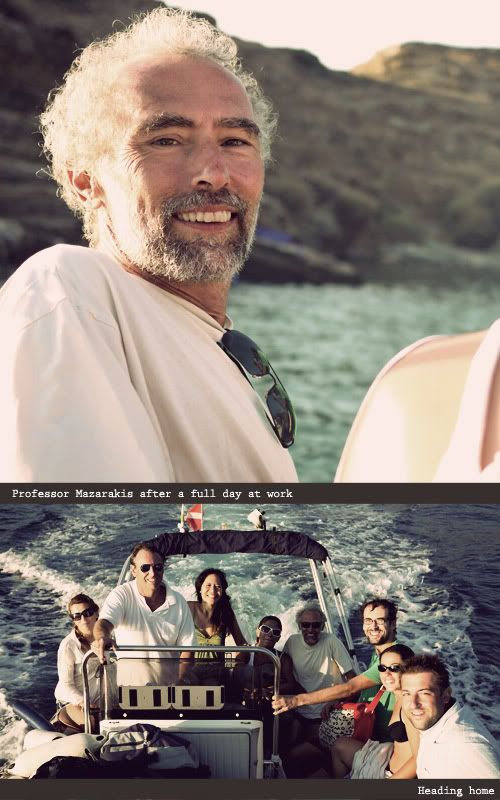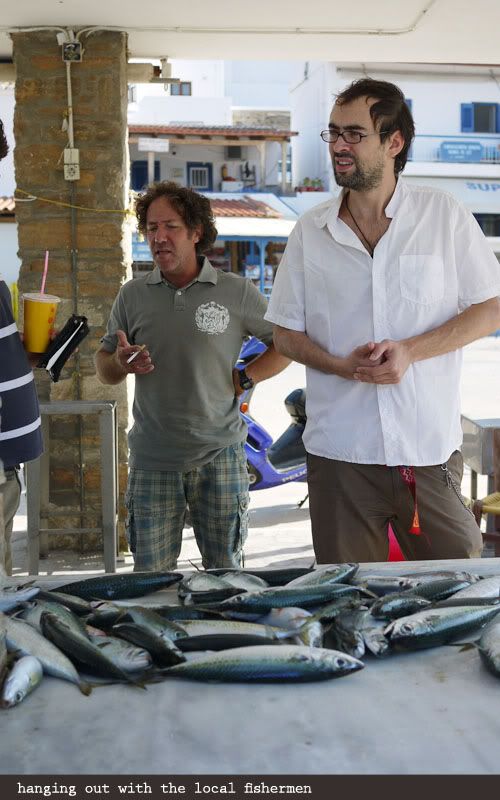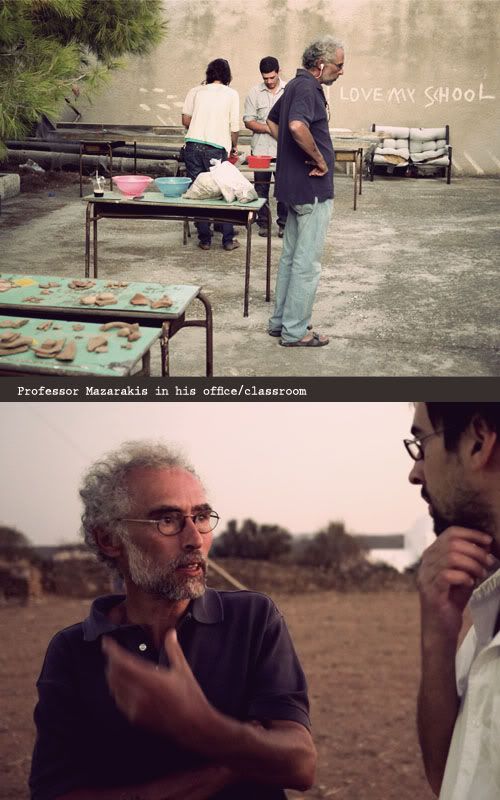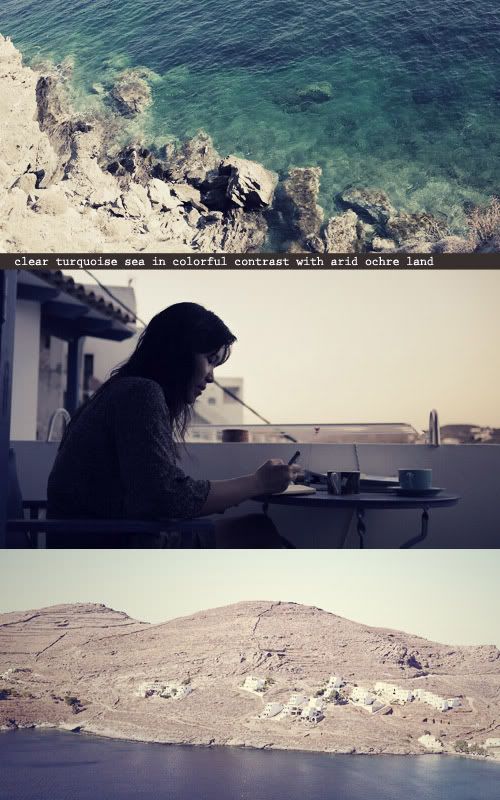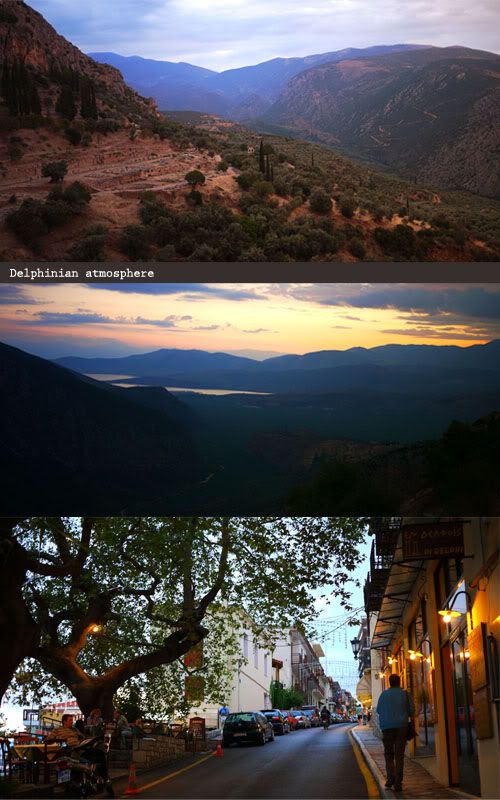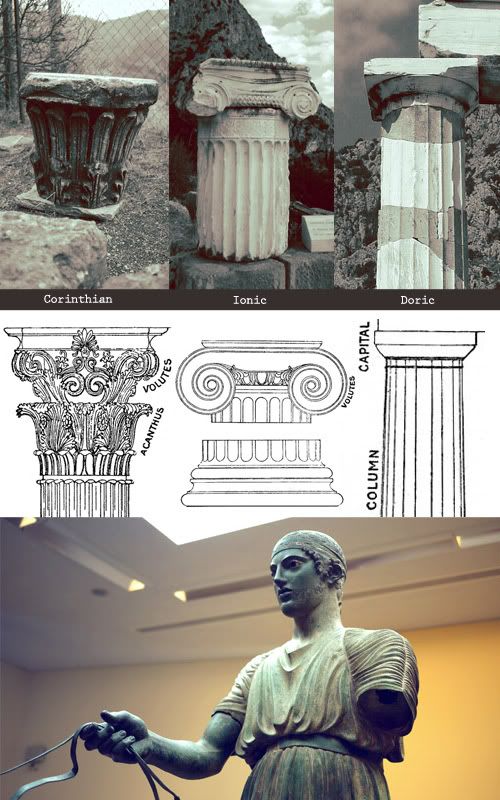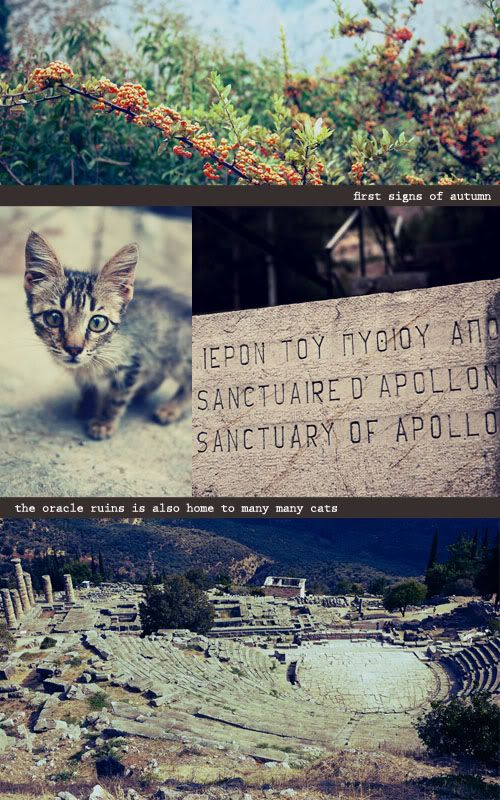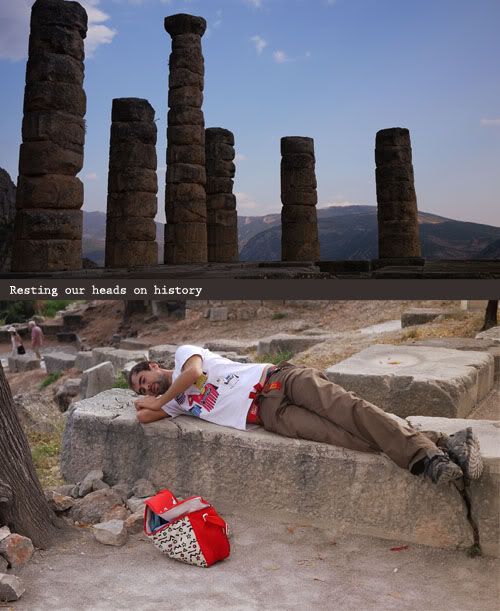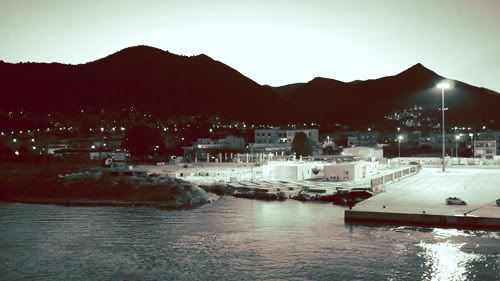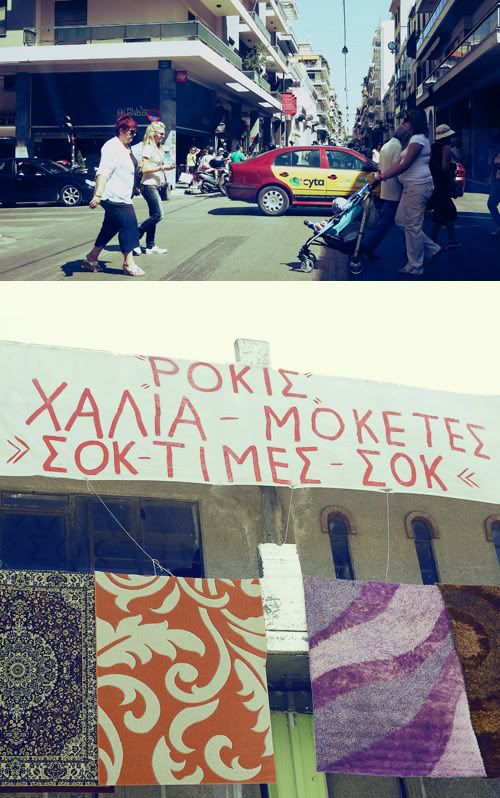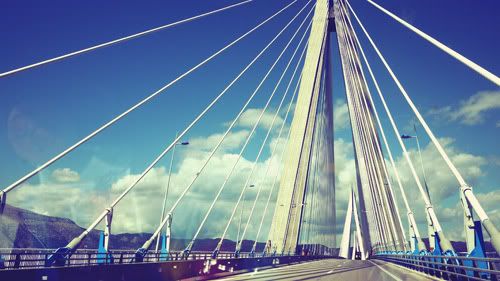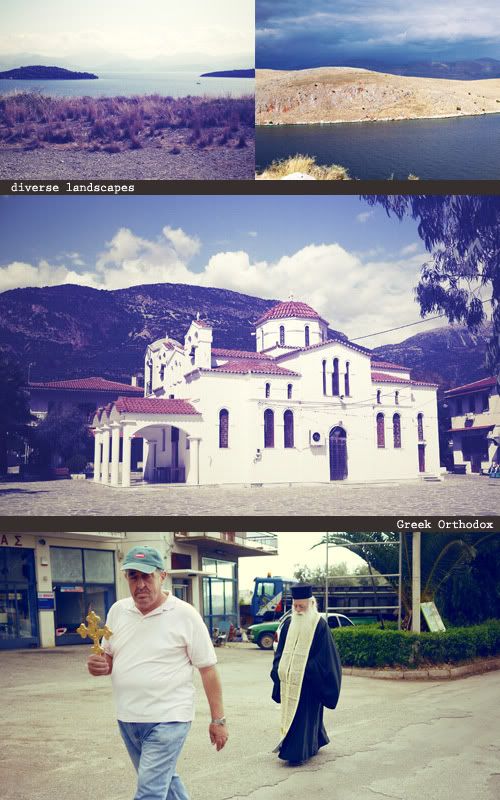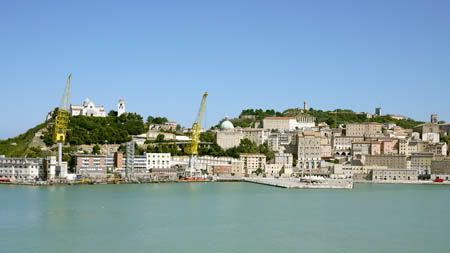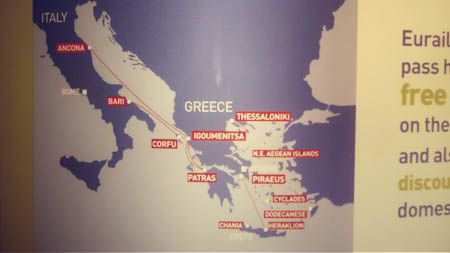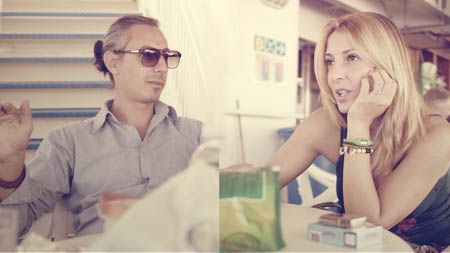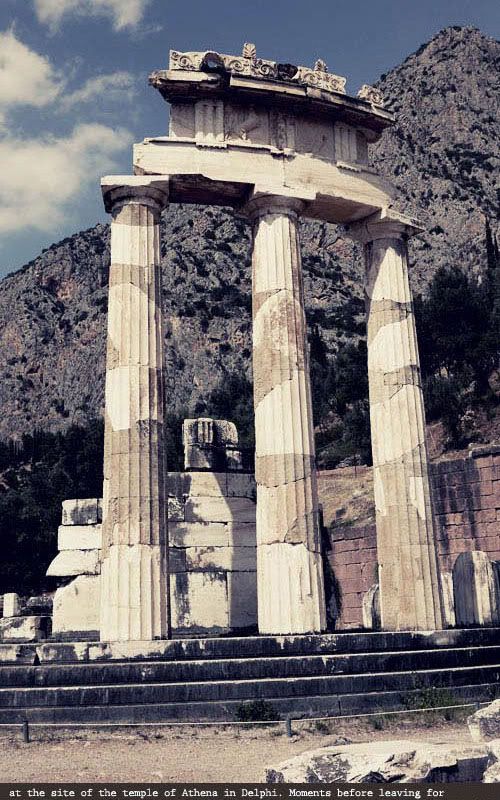
First thing in the morning, still in Delphi, enjoying the view, rushing for the last minutes of breakfast, we head off to the Temple of Athena, the guardian pre-empting every foreigner for the great Temple of Apollo and its many pilgrims who come to visit the Oracle.
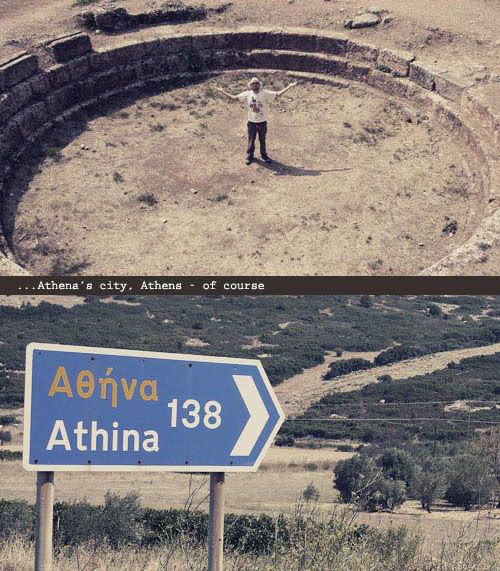
For a moment I think about Athena, the virgin goddess, the woman fit enough to be a man. She embodies both female: wise, protective, and male: shrewd, mighty. She's the only god born not from the womb but straight out of the head of Zeus, her father the king. What a woman and what a difference with the character of Gaea, previous goddess of worship, vulnerable mother. Did the worship of Apollo and Athena (and the rest of the Olympians) mark societies' transition to the patriarchy? After all, the most famous Greek personalities have almost always been men or manly (in some cases, male-lovin' men). Greece is credited for the birth of western civilization with democracy, polis, and philosophy as some of its greatest contributions. Many conquests have expanded its borders and during its height reached the far end of the east towards Afghanistan and on the west heavily influencing the Romans, who copied many beliefs and ideals.

They say that the Mythology of a society also reflects its people. Perhaps amidst all the drama, as written by our ancient poets and sung by the old bards of the rise and fall of gods and goddesses, so did the lives of the ancient people animate and evolve. Could there be any link between ancient mythology and present-day telenovelas or TV soap operas? or at least, is there any wonder why, until today, masses of people from all over the world are entertained by these shows? Such a topic requires more time and perspective. Would love to hear what others think.
Finally on the edge of Athens. First thought, how in the world can anyone find their way here without GPS?
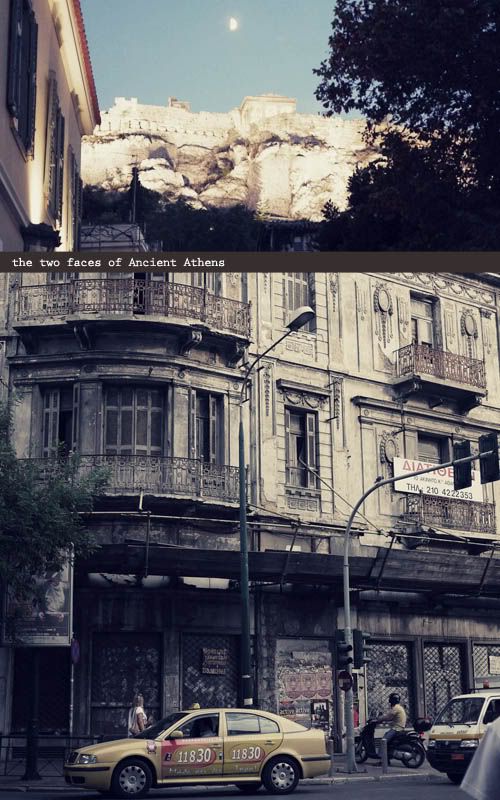
We go off towards the ancient city to meet Myrto, a documentary film-maker currently working on her latest project, Life in a City Full of Errors. Soon she will also be releasing her documentary called Crisis, a personal account on life in Athens amidst these recent problems. She spent some years in Barcelona and London for her work and studies until she decided to go back home to do something creatively, to help improve the current situation. Recently, BBC world featured her documentary. Shes also looking forward to submitting it to several festivals.
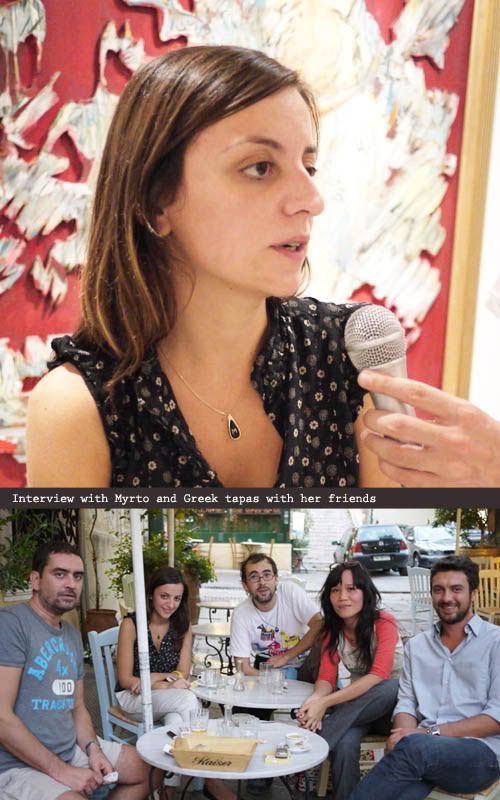
We meet her two friends, Yannis and a chef Cavalier member, who both have very interesting perspectives on the crisis and on broader world issues. Dinner was a mix of many different delicacies -all of them absolutely more delicious than the other. and of course, together with several shots of Rakia, a liquor similar to Grappa, our walk uphill was a light one.
We both had the pleasure of seeing part of Myrto's documentary. I liked it a lot and loved the personal perspective she shamelessly exposes through her shots, recorded conversations with people and experience on the streets. After hearing some of her own thoughts on her work, she confirmed to us the same message we felt at the end of watching Crisis - its still up to us. Our part may be small but many small great things is still much better than a mob of cynics.
